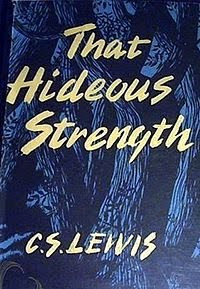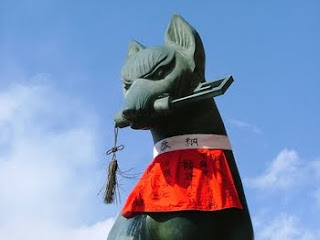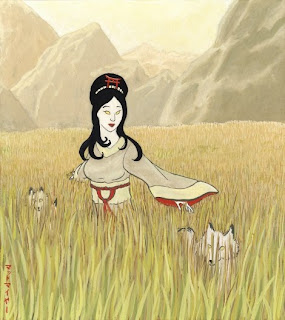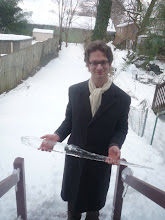For the past few weeks I've been re-reading C.S. Lewis's Space Trilogy (
Out of the Silent Planet, Perelandra, and
That Hideous Strength) for the first time in quite a while. The last time I read these books I was eleven years old and on a plane from Dublin to Newark so I don't remember much. I got through the first two books double-quick but like many people I'm finding
That Hideous Strength a bit of a slog. I LIKE it, but it's much slower reading.
One thing that I've been noting this time around is how these books deal with gender. I don't generally go to C.S. Lewis expecting great things with regards to gender issues or female characters, for three reasons: first, the whole Susan Pevensie debacle; second, how Dorothy L. Sayers once said that when the topic was sex and gender Lewis's mind just kind of went to static until somebody changed the subject; third, 'Ministering Angels' was truly awful. So when, late in
Perelandra, Lewis suddenly started talking about gender and sexuality, and didn't stop in
That Hideous Strength, I was kind of expecting to be angry at him.
And I am. But, weirdly, not as much as I thought I would be.
The bad things about the way the Space Trilogy handles gender are both really bad and obvious, so I'll list them first: gender is presented as real, the feminine gender is presented as 'lower' (though Lewis tries really hard to avoid equating this with 'worse', this was doomed to fail from the start and Lewis and all of his loved ones knew it) in some kind of spiritual hierarchy than the masculine, God is explicitly masculine, there is a character who is a gratuitously vicious butch lesbian stereotype, and the anti-contraception arguments in
That Hideous Strength are completely insane and
revolve around a deliberately absurd warning about eugenics and Merlin chopping people's heads off.

The good things are more subtle but also arguably more interesting, as the bad things are pretty much just what you'd expect of a conservative single male academic writing in the 1940s. In the realm of good things: gender and sex
are different things and don't always go together in the allegedly 'normal' way (the main character, Elwin Ransom, is male in sex but actually feminine in gender as Lewis presents it), going 'against gender' isn't presented as sinful so much as something that just confuses the narrator and thus the author (the narration is first-person ancillary with Lewis appearing briefly in
Perelandra), God isn't gendered in the same 'way' that humans and angels are (whatever that means), there are apparently five genders other than male and female that only exist in the Outer Planets, husbands who abuse their wives are roundly condemned,
That Hideous Strength has a sympathetic coded-lesbian character in addition to its more explicitly lesbian evil character, and we're clearly not supposed to agree with everything Merlin says since he also recommends killing George VI for being a Saxon and insists on referring to Iraq as Babylon.
I think what this shows is that Lewis was interested in discussing gender within a small-l liberal Christian perspective but was hamstrung by his environment, which was filled with people who with the arguable exception of Williams were a lot more conservative than he was about these things, and by the fact that at the time that he wrote the Space Trilogy he had essentially no clue what a woman who wasn't Dorothy L. Sayers or G.E.M. Anscombe even looked like. Most of what he writes about sex is very questionable and I've spent a lot of
That Hideous Strength with face firmly in palm.
It's interesting to think that with the exception of
Til We Have Faces and maybe
Surprised by Joy this is about as non-failing about gender as Lewis gets, and that most of my favourite authors tend either to have had 'of their time' views on gender (Lewis and all those premodern writers I love), to not really discuss it at all (Umberto Eco and his ilk), or to win at gender but fail in some other ways (Angela Carter, in my most humble opinion). I'm not sure if this means that I simply prefer older literature, that what I consider good portrayal of gender (as opposed to just awesome female characters, which is a broader category) simply isn't that common in general, that my interest in literature with religious themes or discussion ropes in questionable (though rarely if ever outright Godawful) dealings with gender as a sort of sacrificial lamb, or what.








